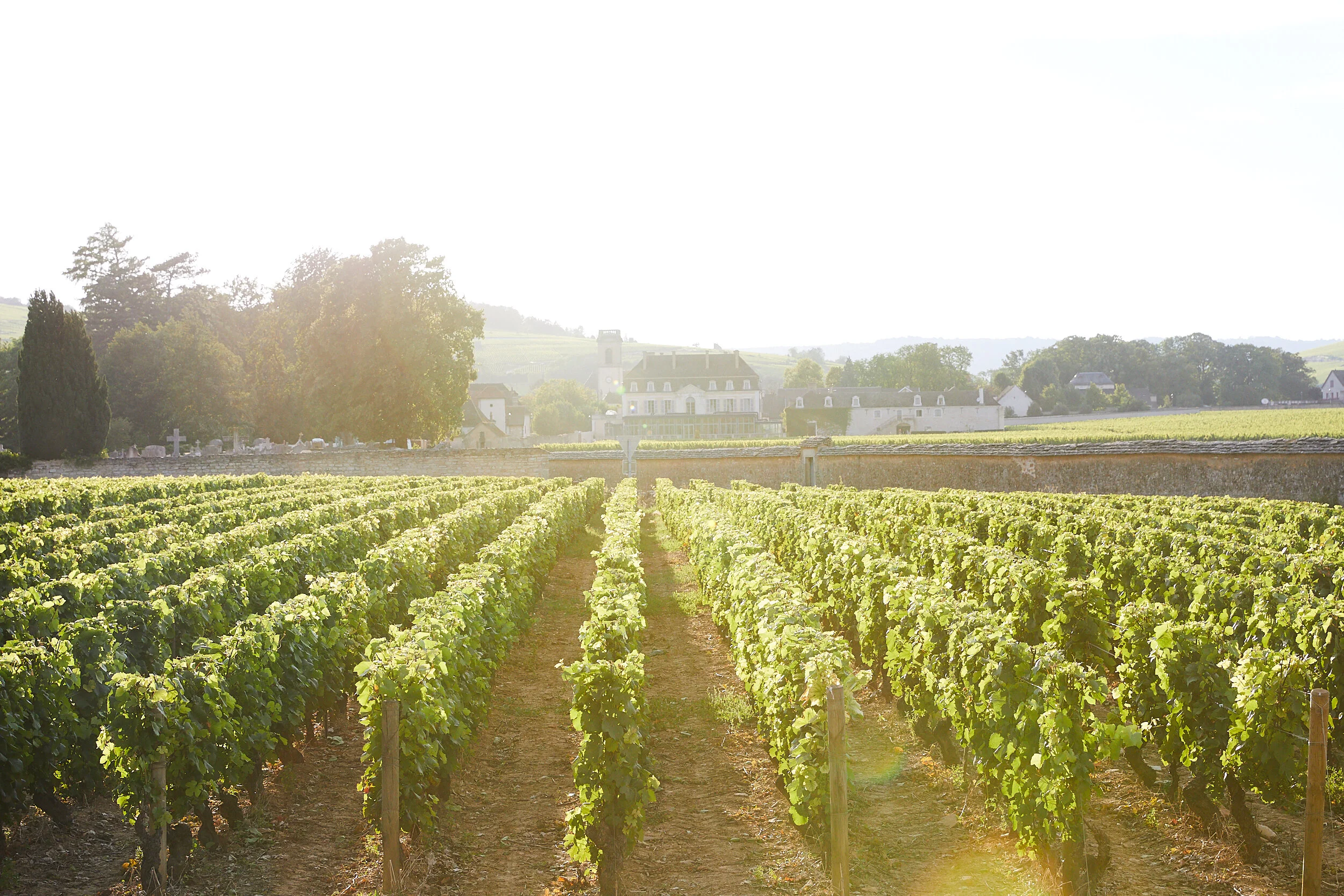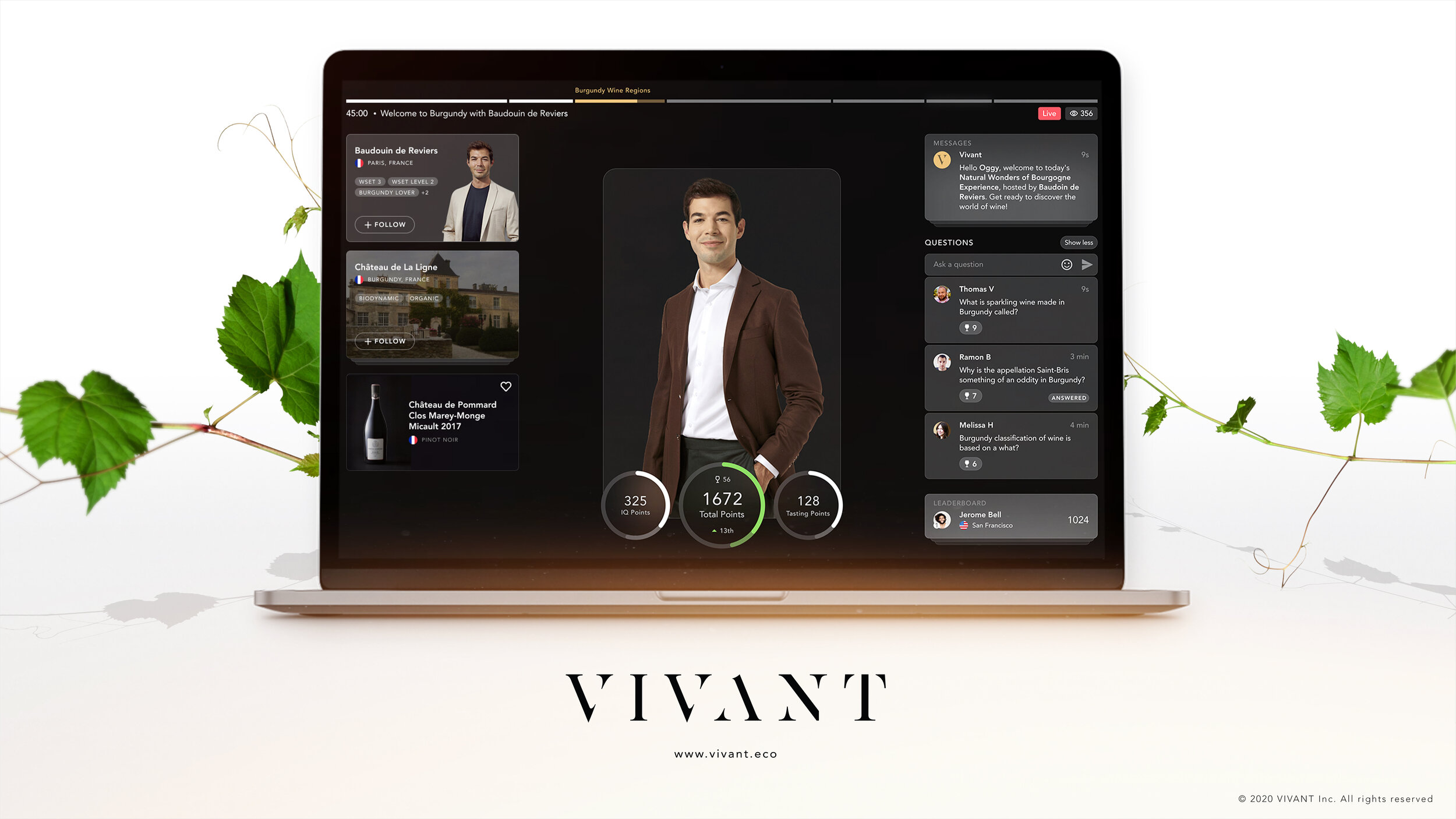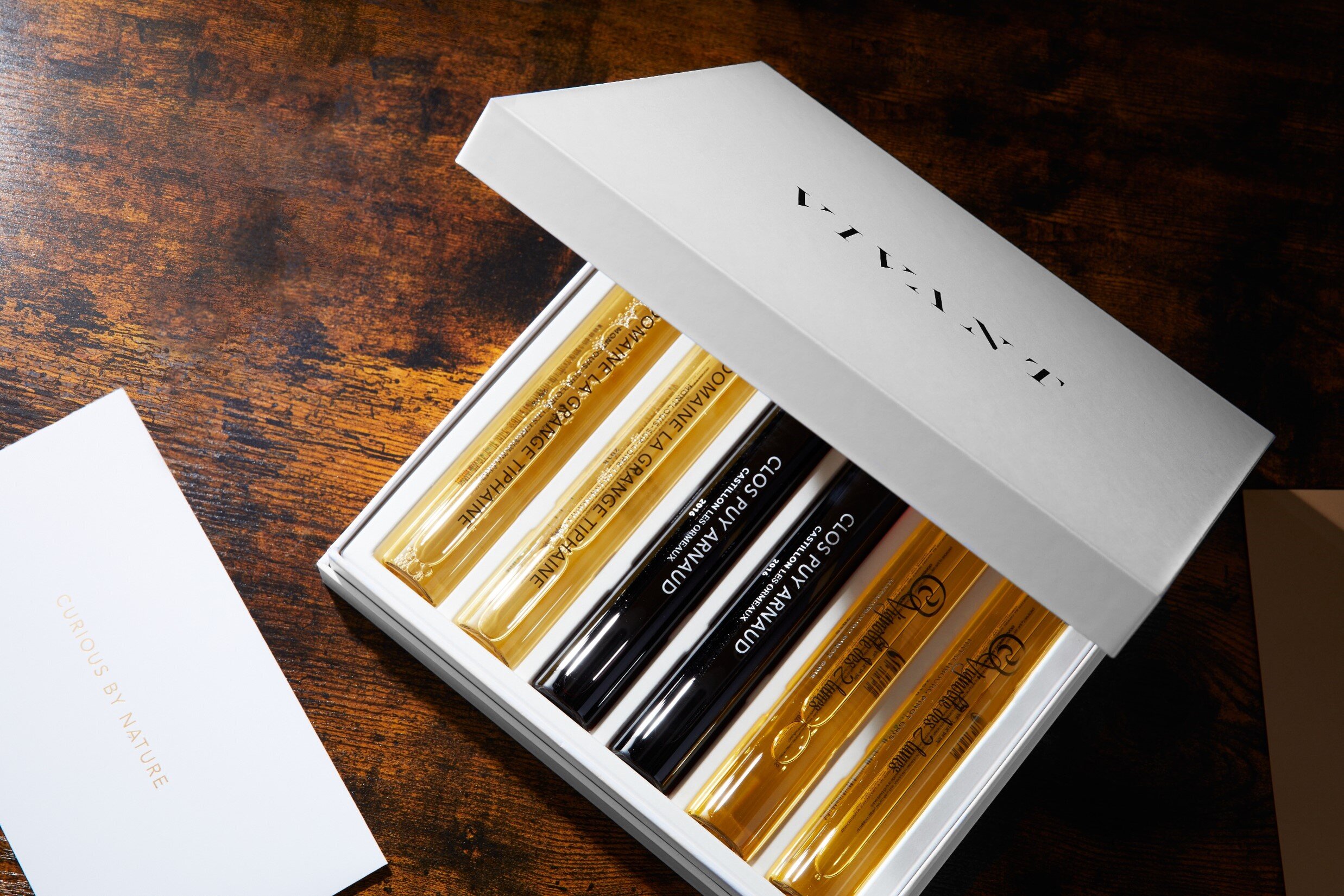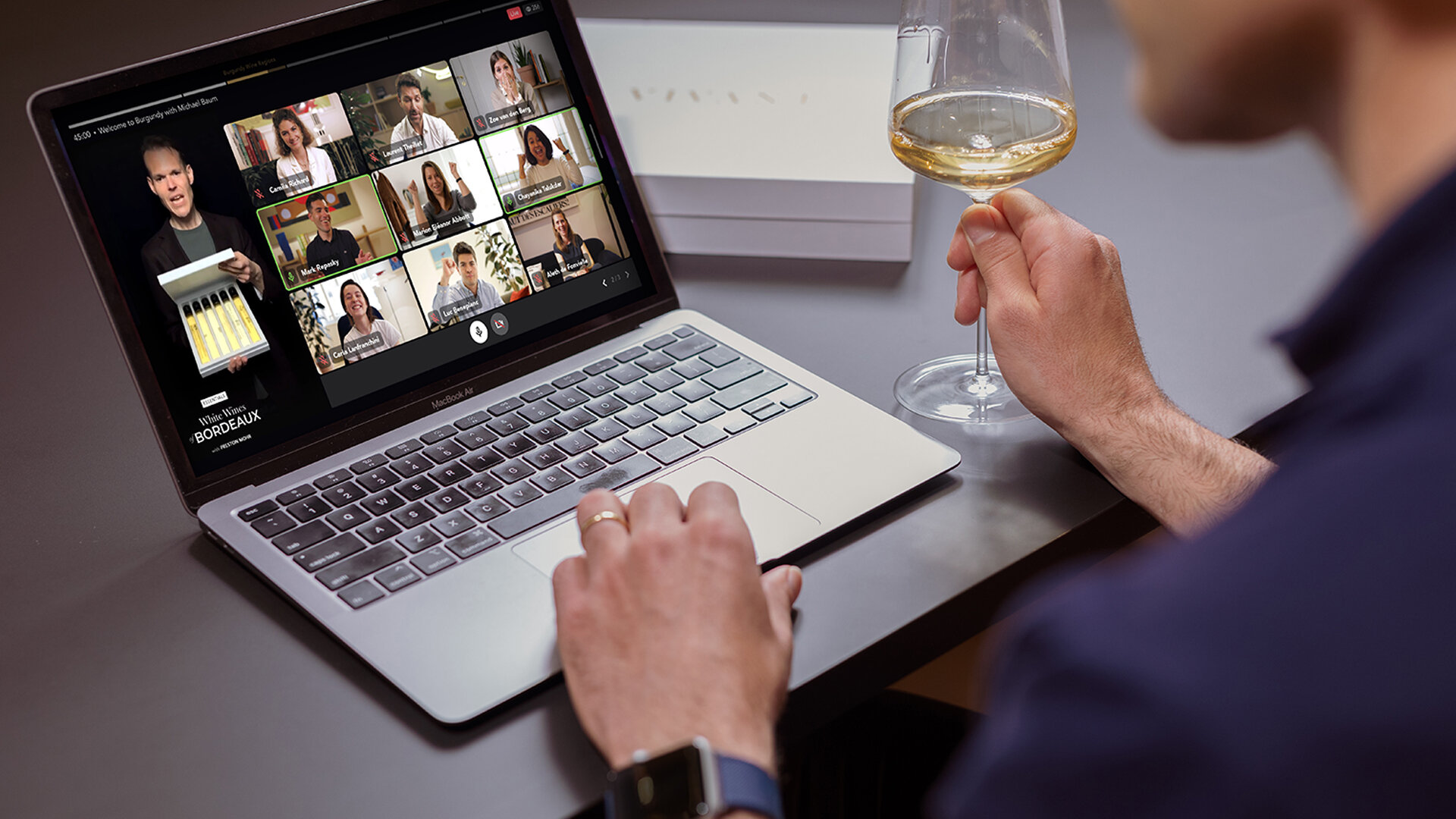MICHAEL BAUM'S VIVANT CAPSTONE
“It’s the combination of tech and wine that gets me most excited,” Michael Baum
Vivant: The French word for alive, living
INTRODUCTION
Michael Baum is a serial technology entrepreneur and venture capital investor. Best known as the founder & CEO of the big data software giant Splunk, taking the company public after all of Michael’s previous five tech startups had been successfully acquired. In September 2014 Michael and his family switched gears to a new project, purchasing the prestigious Burgundian winery Château de Pommard. As the first American to secure a wine estate in Burgundy, it was the manifestation of a 30-year enchantment with fine wine. What began as a passion has turned into a Capstone, a mission to change the way wine is sold and enjoyed. Michael is applying Silicon Valley thinking and experience to a very traditional industry, ruffling a few French feathers in the process…
CORNERSTONE PHASE
Michael was born in May 1962 in Philadelphia. He attended a New Jersey state high school then onto Drexel University for a degree in artificial intelligence, compiler, and language theory. Michael originally chose a bachelor’s degree in electrical engineering but a university visit by Steve Jobs inspired the switch to the then-unfashionable computer science major. During his studies, Michael gained valuable experience as an intern at IBM Silicon Valley Lab and completed his studies with an MBA from The Wharton School at the University of Pennsylvania.
It’s at this point we mention that Michael married his wife, Julie Carabello. The couple married 30 years ago in Napa Valley. Despite starting to get into wine, Michael wasn’t captivated by the Californian wine country’s style… Michael and Julie honeymooned in Europe, and this is where Michael’s fascination with Old World wines really began…
KEYSTONE PHASE
Michaels’ keystone phase is characterised by a string of business wins in Silicon Valley. Having already successfully founded and sold five technology companies by 2003, Michael then co-founded Splunk with Rob Das and Eric Swan with Michael the CEO for the first six years. It was a pure-play big data company scaling quickly as companies wanted more operational intelligence and so used Splunk’s big data software to understand machine-generated data, applying it to security, compliance, and reporting. The company reached profitability in 2009 and had a record-breaking $5bn IPO in 2012.
The same year as the public listing, Michael found a new mission off the back of his success: bring Silicon Valley know-how to the world. He created Founder.org, an organisation that provided funding and mentoring to graduates with a good idea to ensure that they brought them to fruition.
Initially, the organisation backed 10 entrepreneurs per year but has now grown to support, each year, 50 of the most innovative startups from universities around the world. Each is awarded up to $100k and undertake an intense 12-month program that often leads to Founder.org lead Seed and Series A funding rounds.
A lot of Michael’s keystone phase was understanding his own strengths and weaknesses. Michael is the first to admit though he is not a people’s person. He isn’t detail orientated, his brain is much more built for visionary, bigger picture thinking. He is not a fan of networking (self-proclaimed ‘the world’s worst at it’) unless it’s in the course of growing the business and certainly not a person for chit-chat. He will often attend a management meeting 10 minutes late so that the group can get their chit-chat out of the way… Michael is driven more by systems and admits to preferring to deal with machines over people. But through his keystone phase, he realised the fundamental importance of recruiting the best, most diverse people and thinking styles. Based on pioneering ‘Whole Brain Thinking’ and brain dominance technology led by Ned Herrmann… Michael applied the methodology to A-player recruiting. Creating systems and processes to maximise outcomes…
By 2014 Michael and family were ready to switch gears from terabytes to terroir– onto their Capstone phase…
CAPSTONE PHASE
“Having spent much of my career as a Silicon Valley innovator and entrepreneur, I have always been seduced by the world of wine”
In September 2014, Michael became the CEO & Propriétaire of Château de Pommard, a Burgundy winery established in 1726 based in a small village of just over 500 inhabitants. The family (Michael, his wife Julie and their two boys) moved to the estate that consisted of 20 hectares of clay-rich soils and pinot noir vines. The Baums became the fifth family in 300 years to steward the domain which includes two chateaus built in 1726 and 1802.
Michael is not the first Silicon Valley success story to invest in wine, yet he did not follow the UHNW US-herd by going to Napa Valley. The difference however between Napa and Burgundy is perhaps the guarded traditions and willingness to change.
However, as a progressive, Michael was not going to accept things stuck in their ways just for traditions’ sake. One of the first decisions was to switch to organic and biodynamic farming and winemaking, alongside converting the historic buildings into a new winery, wine school and five-star hotel. Michael’s family share the workload: Julie for example is involved in the restoration of one of the Chateaus, Michael more on the winemaking and business side. The restoration is an exciting project that’s currently in progress, and whilst proud to be nearly three centuries old, Chateau de Pommard is now preparing to get in shape for the next three hundred years.
With the winery’s winemaker, Emmanuel Sala, Michael replaced tractors with horses to plough the soils between the vines. Playing to the strengths of The Clos, Michael could ensure the wines are free of pesticides and herbicides and contribute to the regeneration of the soil due to the protection from neighbour’s use of chemical sprays via the 2-metre wall built in the 1800s that surrounds the largest monopole in Burgundy.
Several years since embarking on a more biodynamic viticulture, the wine is described as more aromatic, flavourful and energetic.
TECHNOLOGY & WINE
Moving to Burgundy for Michael was a:
“Lifelong dream to do something different and find a different pace of life/ balance” where “frequency here is measured in decades not seconds or milliseconds like in Silicon Valley”.
A natural disrupter, Michael is starting to challenge the traditions of Burgundy…
In 2019 the winery had over 25,000 clients visit from 92 countries, during the pandemic clients making the pilgrimage to Burgundy ground to a halt. Instead, the business saw much larger retail traffic online with client’s average order value and spend significantly up. Michael accelerated his focus on bringing a different mindset and platform to engage with consumers and remove the barriers for clients around the world to experience the wine. Digital was something Michael was comfortable with. Michael’s ambitions are to apply tech to the wine business:
“Burgundy has a tradition that’s powerful but limited, which only appeals to a certain audience. And, historically, producers have sold onto wholesalers, so they haven’t had to think about their brand,” he says.
“That’s very different to how things are done in Silicon Valley, where the model is to really be in touch with the consumer. So, at Pommard we’re taking a more Silicon Valley model: 90 percent of our sales are now direct to the consumer”.
VIVANT was launched in late 2020.
VIVANT is the first wine experience platform streaming live experiences from wine regions around the world. The platform hosts immersive experiences, where members meet the most interesting people in wine and discover the world’s best tasting wines. Crucially, all wine is made free of pesticides and herbicides with minimal intervention. Key to the experience is a ground-breaking Interactive Tasting Method through Experience Kits (tasting kits of six 100ml wine tubes) delivered worldwide. Each immersive live experience is hosted by an expert wine advisor. Wine is a sensorial, emotional product so the team have thought hard about how to bring together, celebrate and preserve human connection online. Part of the challenge was to get the wine into people’s hands quickly, economically and in good condition.
VIVANT is all about technology empowering engaging interaction, personalized education, and lively entertainment. The goal is to recreate the magic of wine experiences without the carbon footprint of stepping on an airplane.
“We’re taking what we’ve introduced at Château de Pommard – wine experiences and vineyard visits – and we’re reaching more people by effectively putting that on a digital platform. I don’t know why this hasn’t been done before.” says Michael.
VIVANT has created a ground-breaking Interactive Tasting Method™ (ITM) that enables users to challenge each other on a leader board and earn Cheers, Tasting Points and Wine IQ Points as they improve their wine knowledge and tasting skills. The platform also recently launched ‘Private Events’ experiences, which is a bespoke offering for corporate events (ideal for team building amongst a remote workforce). This includes a new video wall function so that participants can see and communicate with each other visually, as well as through the chat function.
The wider purpose of the platform is to accelerate the wine world’s transition to a sustainable future by amplifying the voices of responsible winemakers, showing consumers naturally produced wines taste better (currently only 3% of the world’s wine is produced naturally), and building a global wine community committed to a better way. Sharing great tasting wines and reinforcing our responsibility to the environment. All featured winemakers sign the VIVANT Pledge, promising to grow grapes and make wine with respect for consumers and the environment. No synthetic chemicals in the vineyard. No additives in the winemaking process. Complete traceability of the grapes, the winemaking, and the aging process. And a commitment to workplace equality and diversity.
Michael is looking to both lead the way by firstly increasing transparency in his winery, the whole process behind Pommard wines will be trackable from the budding of the plant to the shipping of the crate. He firmly believes no one in the future will want to drink wine with chemicals in it. Then, secondly, scale up a platform that connects wine lovers from around the world, curating other biodynamic, organic and responsibly produced wines, which Michael believes is a huge opportunity.
“It’s the combination of tech and wine that gets me most excited,” he says. “An interest in the world of wine started as a hobby and has turned into a business. Going to a meeting with clients to talk about wine is fun, right? Well, that’s not always the case with tech.”
“Essentially we are winemakers, wine lovers and wine educators who believe in wine that’s better tasting, better for you and better for the planet”
For more information please visit:
OTHER WINE CAPSTONE INSIGHTS, TO READ MORE ABOUT:
ROBERT EDEN’S WINE CAPSTONE CLICK HERE
THE FUTURE TECHNOLOGY IN WINE CLICK HERE
MIKE T BARROW’S OPEN VINO CAPSTONE CLICK HERE
ENGLISH SPARKLING WINE AND CAUTIONARY WINE CAPSTONES CLICK HERE
TO READ MORE ABOUT THE HOME FOR FINE WINE CAPSTONE 67 PALL MALL CLICK HERE








